Gerald Groff didn’t want to deliver packages on Sundays; as an evangelical Christian, his religious beliefs call him to rest on the Sabbath.
He resigned from his job as a mail carrier in Lancaster County, Pennsylvania and sued the U.S. Postal Service after being repeatedly disciplined for skipping his Sunday shifts. The Supreme Court is now deliberating his case and will decide whether to overturn decades of precedent to redefine “reasonable accommodations” for religious expression at work.
Religion is one of the most fundamental dimensions of identity in American law, and the least engaged dimension of identity in American companies. Religion is protected by the Constitution in the First Amendment, by Congressional law in both the Civil Rights Act of 1964 and the Religious Freedom and Restoration Act of 1993, and by numerous Supreme Court cases. Ignoring religion exposes a company to huge legal risks. Engaging religious diversity, on the other hand, can strengthen team cohesion, prevent crises, and create opportunities for businesses.

Where Religious Identity Fits into Your DEI Strategy
One of Interfaith America’s new practice areas is Religion in the Workplace. Over the past two years, our team has adapted the tools we created for a higher ed context to fit the corporate sector. CEOs, DEI leaders and HR professionals from Fortune 100 companies like Walmart and Google, as well as small businesses, have invited us to help their teams build the know-how and the skills to engage religious diversity in meaningful and productive ways that lead to stronger business outcomes.
On Tuesday, we published Where Religious Identity Fits Into Your DEI Strategy in the Harvard Business Review with our longtime friend, Michael Hill, president of Chautauqua Institution. The piece proposes seven best practices for engaging religious diversity at work and is, to our knowledge, the first of its kind in a major journal. Too often business leaders are unsure whether and how to bring faith into the workplace, but we know that religious diversity is an asset to be activated, not a problem to be solved. The article shares concrete examples of companies that are leaning into this work in groundbreaking ways and offers guidance for leaders who are looking for a place to start.
We’re grateful for the opportunity to shape how business leaders think about religious diversity and to keep expanding Interfaith America’s work in the corporate space.





